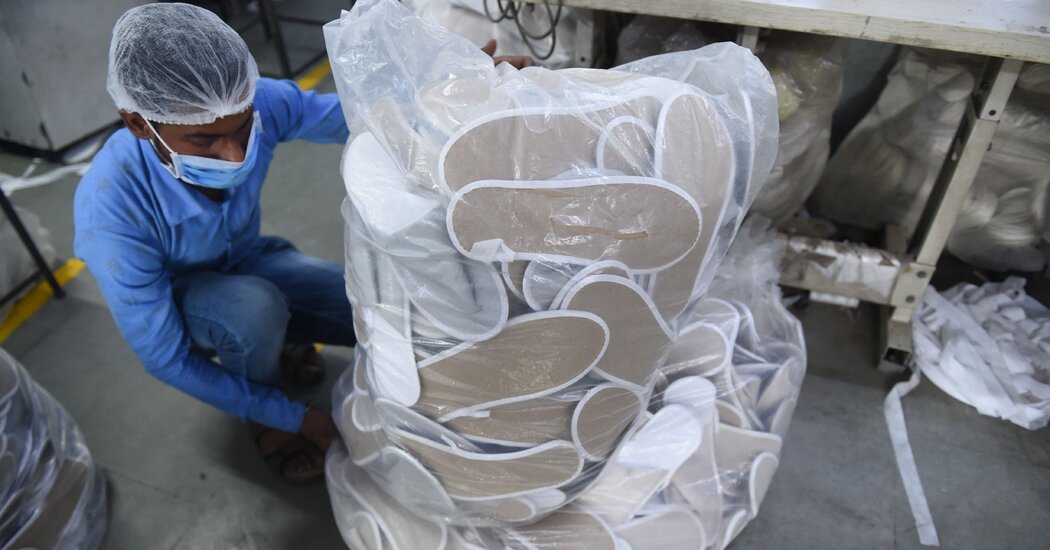In November, managers at the Arenas del Mar resort near Manuel Antonio National Park in Costa Rica, challenged employees to come up with ways to operate more sustainably. The maintenance crew suggested electric locks on guest room doors. The food and beverage department proposed making jams from fruit peels. And the housekeepers advised: Ditch the slippers.
“It didn’t make sense because you use them once and throw them out,” said Hans Pfister, the president and co-founder of Cayuga Collection, the hotel group that manages the resort, which took housekeeping’s advice. “It’s very wasteful.”
Like plastic straws and mini bottles of shampoo, disposable slippers — flimsy models usually made of plastic and fabric, and often found bedside at turndown or bagged in hotel closets — are the next single-use item in the cross hairs of sustainability activists.
“Anything single-use is problematic,” wrote Willy Legrand, a sustainable hospitality expert and a professor at the IU International University of Applied Sciences in Bad Honnef, Germany, in an email. He cited the large footprint of a small slipper once you factor in production, shipping and waste. Single-use slippers, he said, “feel out of place and out of touch.”
Nina Boys, the vice president of sustainability for Beyond Green, a group of hotels vetted for their sustainability practices, called slippers “low-hanging fruit” in the fight against plastic.
Slippers as status symbols
While plastic straws can be easily replaced with paper versions and small shampoo bottles by larger dispensers, subbing for slippers is more complicated based not just on materials but cultural expectations and perceptions of luxury.
Providing slippers in hotels is rooted in the Asian tradition of removing your shoes indoors, said Diana Verde Nieto, a sustainability expert and the author of “Reimagining Luxury.”
“As hotels started to cater to international guests, particularly those from Asia, the provision of slippers became a way to accommodate and respect these cultural norms,” Ms. Verde Nieto wrote in an email. She added that the comfort and hygiene associated with slippers has become a universal luxury standard today.
Offering slippers also helps hotels earn status ratings from travel organizations like AAA or the European Union’s Hotelstars.
Some resorts have found it easier to address sustainability through food waste and community engagement than footwear. Winvian, the boutique resort with 18…
Click Here to Read the Full Original Article at NYT > Travel…
